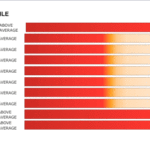A perennial issue in the workplace is how best to develop trust between leaders and team members. At a Career Development Association of Australia Annual Conference, philosopher Dr Jeff Malpas from the University of Tasmania, made the point that trust is a basic ethical concept that is a pre-requisite for effective management. In a business environment that is highly complex, inter-connected and changeable, decision-making can no longer be the prerogative of the senior echelons of management. There are simply too many decisions to be made every hour for these to be referred up a command chain. If organisations are going to respond effectively to change on an on-going basis, decision-making must be a feature of almost all staff roles. To allow this to happen, it helps if you trust your workforce.
Successful organisations are populated by employees invested with sufficient trust to allow them to make the decisions they need to make. However, this does not mean that these organisations can afford simply to assume their employees will do the right thing. Decision-making is a skill, and decision-making under pressure and conditions of rapid change and uncertainty is difficult task. It is also an ethical skill. How many times has it emerged during ICAC inquiries and court proceedings that at the heart of the problem was a failure to make ethical decisions?
As Malpas points out, it is not simply a matter of saying “right I trust you”, individuals need support in developing an ethical framework in which to make decisions. Leaders need training in ethics not only to assist them in their decision-making but also to assist them in developing the right trust relationships with their employees. Leaders can then be a catalyst for the development of an ethical culture within the organisation. Malpas’ main point as I understood it, is that ethics is at the heart of all human relationships (we cannot be a community and we cannot exchange goods and services if there is no trust for instance).
Perhaps because decision-making, and ethical decision-making can be so complex, there is tendency amongst some Leaders to react against the complexity by trying to increase the amount of control they exert. Classic examples are the imposition of supposed “quality assurance”, “accountability” or worse “compliance” regimes. Using the rhetoric of mutual responsibility, what may be lurking underneath is a lack of trust in staff to do the right thing. This can amount to little more than blame shifting exercises in the event that something goes wrong.
Unfortunately reacting against complexity by trying to close things down to a more controllable simplified world, rarely work in the medium to long term because such a strategy simply ignores the fact that things are complex and continuously changing. Indeed such a strategy may be potentially fatal to the health of the organisation because it encourages a form of corporate blindness where only a limited number of people make decisions using a limited amount of data. When things start to go wrong, and unpredictable things occur, the reaction can often be to ignore the signs and dismiss the troublesome events as turbulence or temporary aberrations.
There has been an increasing interest over the last 15 years in the concept of emergent leadership. This approach does not see the “Leader” as the Grandee who determines the fate of the company or who can control and predict the future. Neither are leaders seen in the terms of classic leadership theory such as traits, styles or as transformers or transactors. So what do Emergent Leaders do? They enable. And they enable by developing a culture that permits others to be innovative and creative. Such leaders trust their staff to make decisions and recognise that the future is uncertain.
This new approach to Leadership places far greater emphasis on trust, uncertainty and complexity, and seems particularly well suited to the uncertain times in which we live. Furthermore empirical evidence from studies investigating this approach appear promising. Donde Plowman and her colleagues at the University of Texas recently found that leaders who are enablers disrupt existing patterns of behaviour, encourage novelty and make sense of the emerging order for others.
For effective leaders and organisations, perhaps the question is not how much can we trust our employees, but rather, can we afford not to trust them?
Related Posts








This really hit home for me.
I can relate to the environment where the “Leader” did not trust the staff, decision making and the workplace suffered a great deal because of it. We were always reacting rather than prepared, and interpersonal conflicts became the norm.
Our leader hand picked the team yet didn’t trust the individuals to make the “right” decision. It paralysed the whole organization, because it lead to a total lack of decision making. Because the staff couldn’t make decisions nothing got done, and most staff quickly realized they were working too hard, so immediately slowed down. Staff didn’t enjoy the atmosphere and change over was swift.
The lack of trust was the complete and total downfall of the whole department.
I loved this article as well!
About ten years ago I left a department that was managed in a highly controlled and authoritarian model and moved to one which was focused on trust and support and the change in my personal and professional life was dramatic. Obviously, I was much happier in my work life and my performance reflected that – I was able to be much more creative and put much more energy into my activities. This in turn made me a much nicer spouse and father to be around.
I’ve tried to be supportive and trusting in my recent leadership roles (not always as successfully as I would like) and these kind of articles both validates what I’ve tried to do and motivates me to do better.
I heard Dr Jeff Malpas speak at the CDAA conference in Hobart, and was so impressed that I went to his workshop as well. His ideas were challenging, but should, I believe, be the cornerstone of political, educational and business dealings.
Integrity and ethical decision making often appear to have taken a back seat to an “I know best” attitude, and ultimately result in negative outcomes for many participants on a lower rung of the ladder who are told to execute poorly formed policy.
The difficulty then becomes “Will I stay or will I go” – and keeps Career Practitioners, coaches, psychologists and the occasional psychiatrist in business.